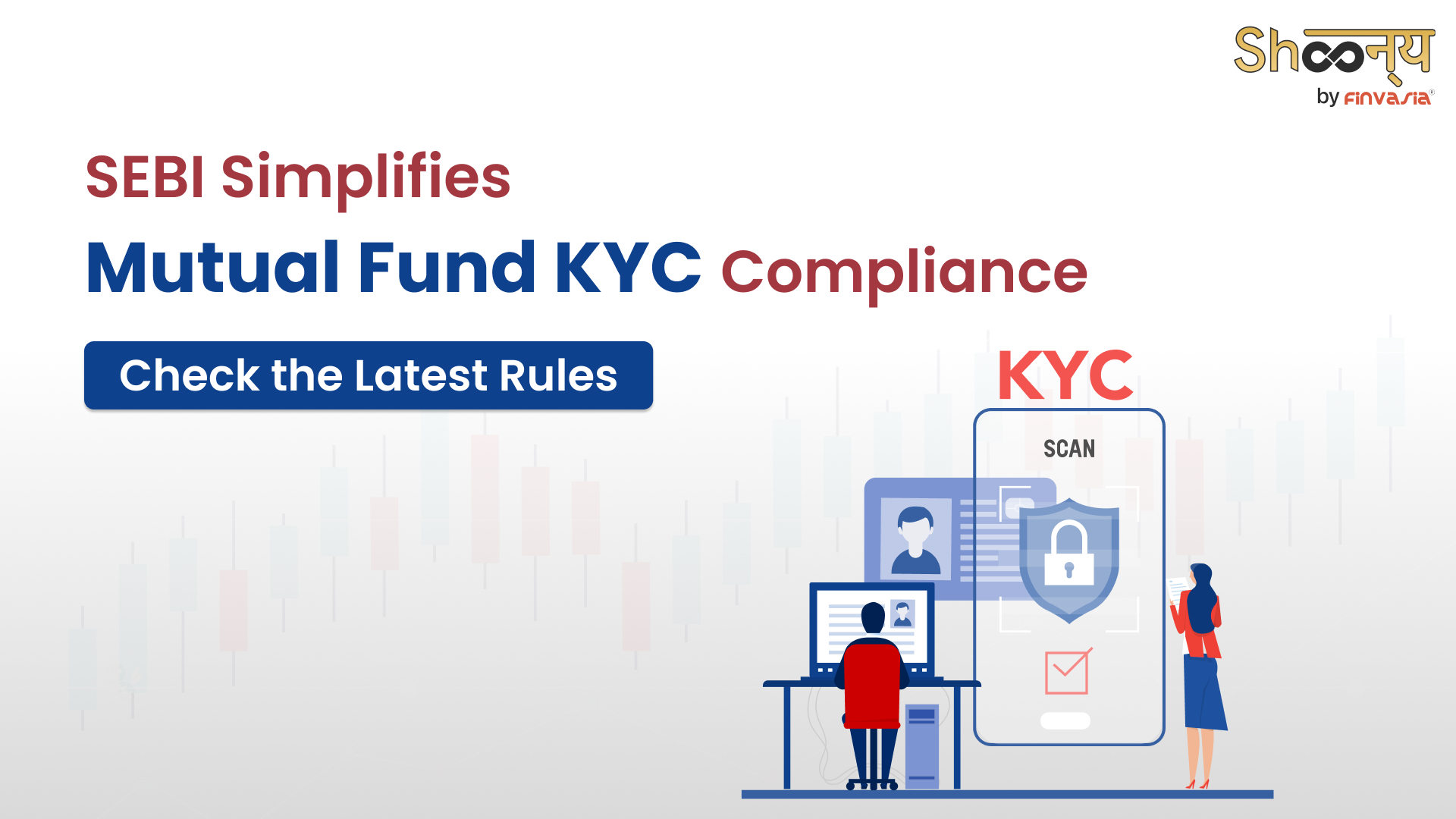Mutual Fund KYC Norms Update By SEBI Simplifies Investor Process

SEBI has recently made a groundbreaking decision that brings relief to mutual fund investors. Now, investors no longer need to link their PAN and Aadhaar to achieve ‘KYC-registered mutual fund transaction status. This latest Mutual Fund KYC Norms Update move simplifies the KYC process and marks a significant milestone in regulatory efficiency.
SEBI KYC Compliance Relief For Mutual Funds| Key Highlights
- SEBI relaxes KYC compliance for mutual fund investors.
- PAN-Aadhaar linkage is no longer required as per Mutual Fund Investment KYC Changes.
- Investors can now get KYC-registered status without linking PAN and Aadhaar.
- KYC validation is possible through an Aadhaar-based process with verified mobile and email.
- Revised circular eliminates PAN-Aadhaar linkage requirement for KYC.
- Investors can use OVDs like passports, Aadhaar, etc., for KYC validation.
Understanding KYC
KYC (Know Your Client) is a process by which banks, fund houses, and stock brokers check an investor’s identity before they invest.
It ensures that brokers and financial institutions understand their clients. Through KYC, investors provide personal information. This helps prevent fraud, ensure compliance with regulations, and build trust between investors and financial institutions.
History of Mutual Funds in India
In 1963, India saw its first mutual fund, the Unit Trust of India. Then, in the early 1990s, public sector banks and institutions got the green light to start their own mutual funds.
Then, in 1992 came the regulatory body- SEBI.
Role of SEBI in Mutual Funds
The Securities and Exchange Board of India plays a crucial role in overseeing mutual funds. It sets rules and guidelines to protect investors’ interests. Regulations for mutual funds were first outlined in 1993.
SEBI ensures that all mutual funds, whether public or private, including those backed by foreign entities, follow the same regulations. They’re all subject to SEBI’s monitoring and inspections. This ensures that investors face similar risks regardless of the mutual fund’s sponsor.
Capital Markets KYC Revisions
SEBI KYC Compliance Relief: SEBI’s regulatory intervention brings relief to investors by eliminating the PAN-Aadhaar linkage requirement for Mutual Fund KYC,
Thus ensuring smoother compliance processes and facilitating hassle-free investment experiences.
Earlier, investors could complete KYC by submitting a bank passbook or account statement as proof of address.
As per SEBI’s risk management, KYC registration agencies must verify PAN, name, and address within two days.
The May 14 SEBI circular on KYC for mutual fund investors has removed the need to check PAN and Aadhaar linkage.
Investors can become KYC-validated or registered by completing KYC using official valid documents (OVDs) like a driver’s license, passport, Aadhaar, or voter ID.
Old rules
- Investors had to link their PAN with Aadhaar to complete the KYC process.
- Without this link, the KYC process would be put on hold.
New rules
- As of May 14, SEBI no longer requires investors to link their PAN with Aadhaar to attain “KYC-registered” status.
- Investors can achieve “KYC-registered” status by completing KYC using other Officially Valid Documents (OVDs) such as an Aadhaar, passport, driving license, or voter ID card.
- However, to attain “KYC-validated” status, PAN and Aadhaar still need to be linked.
Consequences of KYC Status
If KYC is on hold, investors can’t make mutual fund transactions like SIPs (systematic investment plans) or lump sum purchases, and redemption requests won’t go through.
KYC-validated investors can transact across all fund houses, while KYC-registered investors can only transact with the fund houses they’re already invested in.
Conclusion
The latest Capital Markets KYC Revisions to eliminate the PAN-Aadhaar linkage requirement for KYC registration in mutual funds is a game-changer. The Mutual Fund KYC Norms Update not only eases the burden on investors but also signifies a progressive shift in regulatory practices.
Source- moneycontrol.com
______________________________________________________________________________________
Disclaimer: Investments in the securities market are subject to market risks; read all the related documents carefully before investing.








